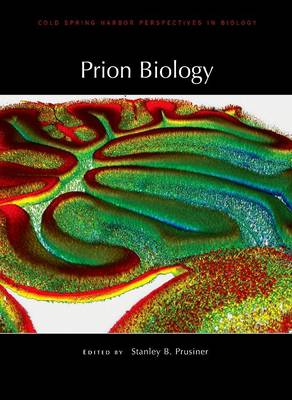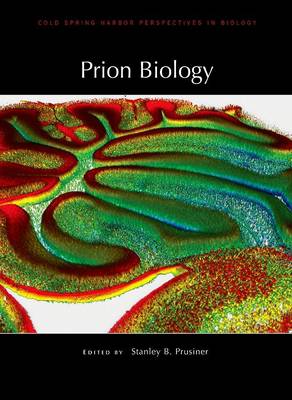
- Retrait gratuit dans votre magasin Club
- 7.000.000 titres dans notre catalogue
- Payer en toute sécurité
- Toujours un magasin près de chez vous
- Retrait gratuit dans votre magasin Club
- 7.000.0000 titres dans notre catalogue
- Payer en toute sécurité
- Toujours un magasin près de chez vous
Description
Prions are best known as the agents of mad cow and related diseases, and a growing number of proteins with prion-like properties have been implicated in diseases such as Parkinson's. But some recently discovered prion-like proteins do not appear to induce pathological changes and, in fact, may be key players in basic biological processes such as transcription, immune regulation, and memory formation. Written and edited by experts in the field, this collection from Cold Spring Harbor Perspectives in Biology examines the expanding roles of prions and prion-like proteins in health and disease. The contributors review the structures of prions and prion-like proteins, how they aggregate into amyloid fibrils and other insoluble complexes, and the unique biological properties of the aggregated forms (e.g., infectivity, gain/loss of function, and self-templating). The normal physiological roles of prion-like proteins (e.g., CPEB in the brain and MAVS in the immune response) are discussed, as is the formation of abnormal protein aggregates via prion-like mechanisms in various human diseases. The authors also discuss prions in yeast and other fungi, which are convenient models for studying mechanisms of amyloid formation and propagation. This volume is therefore an essential reference for biochemists, cell and molecular biologists, and all who wish to understand how these alternatively folded, self-propagating proteins function.
Spécifications
Parties prenantes
- Auteur(s) :
- Editeur:
Contenu
- Nombre de pages :
- 456
- Langue:
- Anglais
- Collection :
Caractéristiques
- EAN:
- 9781621822844
- Date de parution :
- 31-08-17
- Format:
- Livre broché
- Format numérique:
- Trade paperback (VS)
- Dimensions :
- 178 mm x 251 mm
- Poids :
- 1156 g

Les avis
Nous publions uniquement les avis qui respectent les conditions requises. Consultez nos conditions pour les avis.






